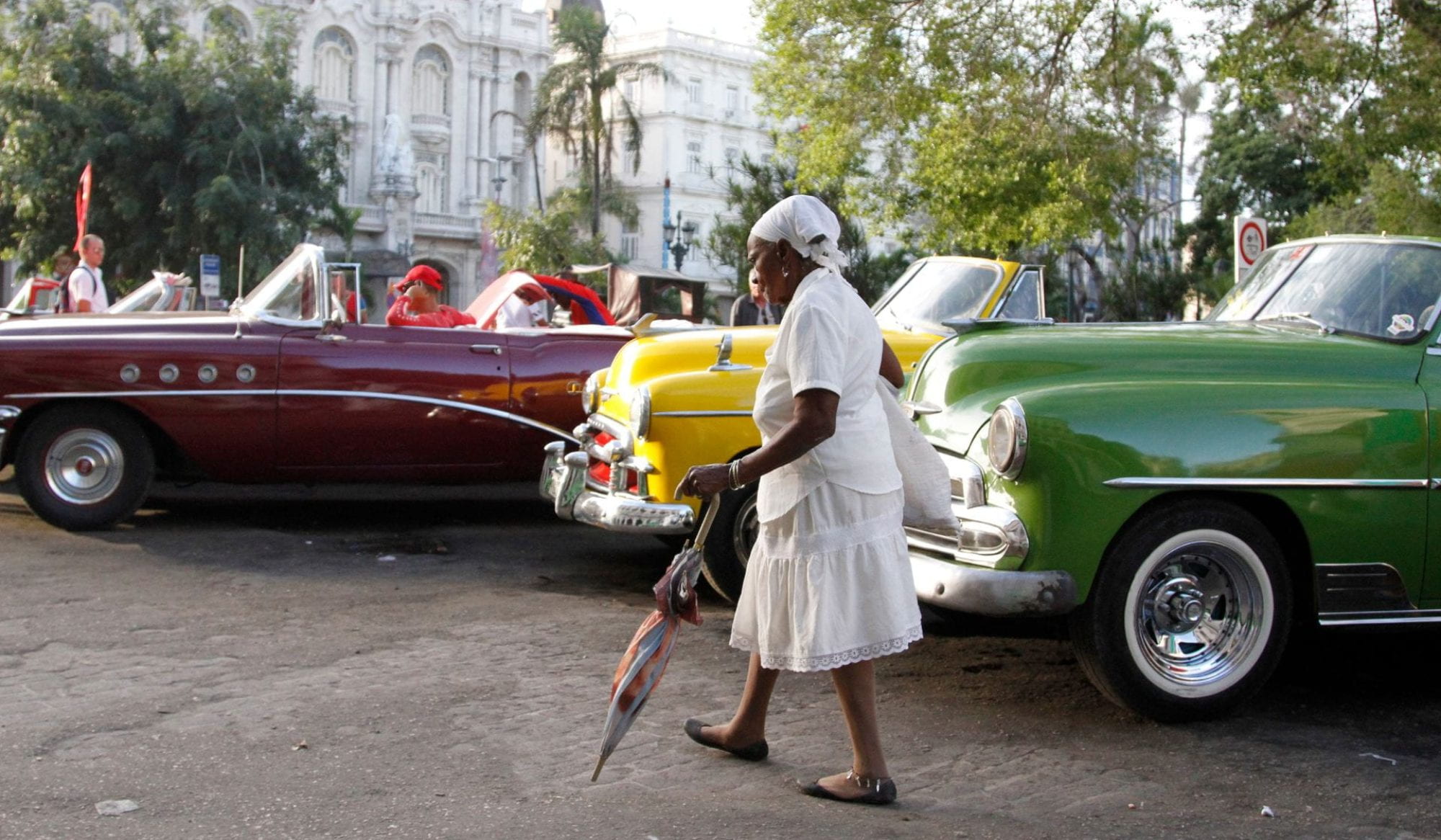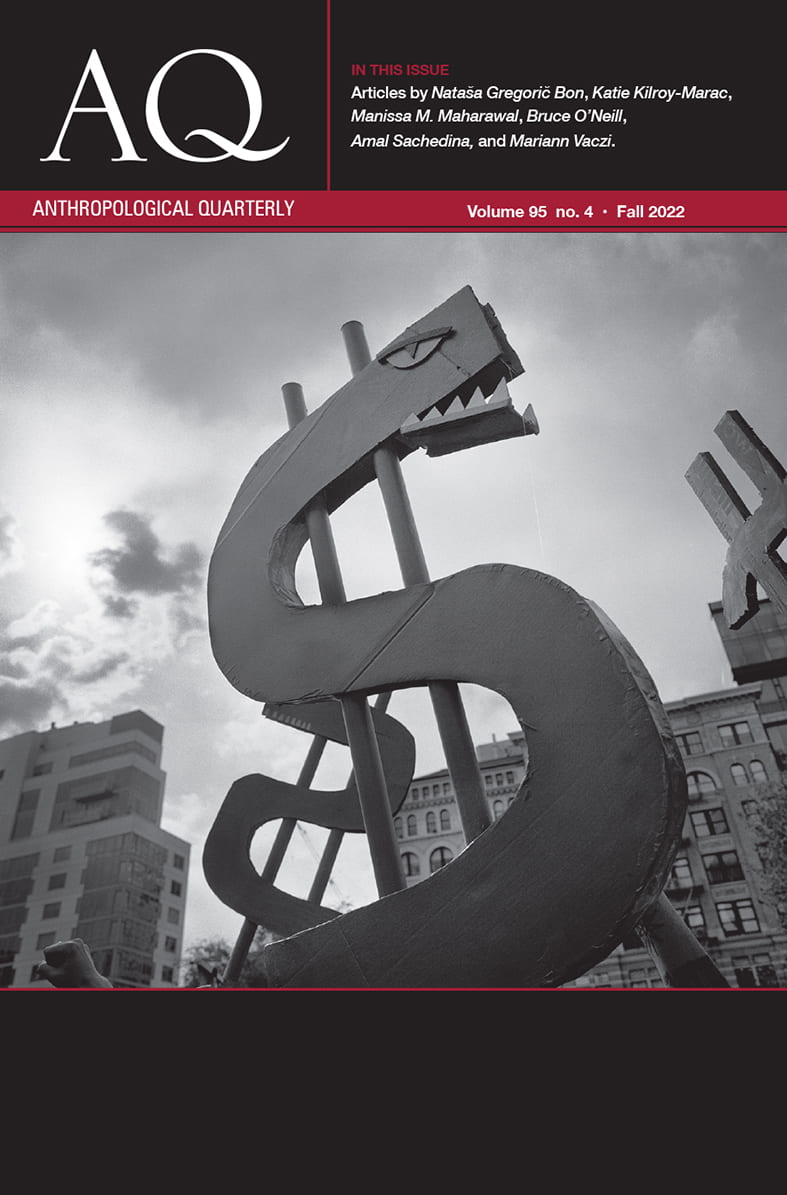
TABLE OF CONTENTS
Vol. 95, No. 4
ARTICLES
Nataša Gregorič Bon | Restoring Pasts and Enriching Futures in Albania
Katie Kilroy-Marac | Hoarding and the Substance of Kinship
Manissa M. Maharawal | Tech-Colonialism: Gentrification, Resistance, and Belonging in San Francisco’s Colonial Present
Bruce O’Neill | The Digital Underground: Public Life Beneath the Streets of Bucharest, Romania
Amal Sachedina | Assimilating the Heterogeneity of Migrant Populations through a National Past: Transforming a Shiʿa Minority Community in Post-Nationalist Oman
Mariann Vaczi | Provincializing Global Sport: Modernity, Capitalism, and the Politics of Difference in the Age of Super Leagues
BOOK REVIEWS
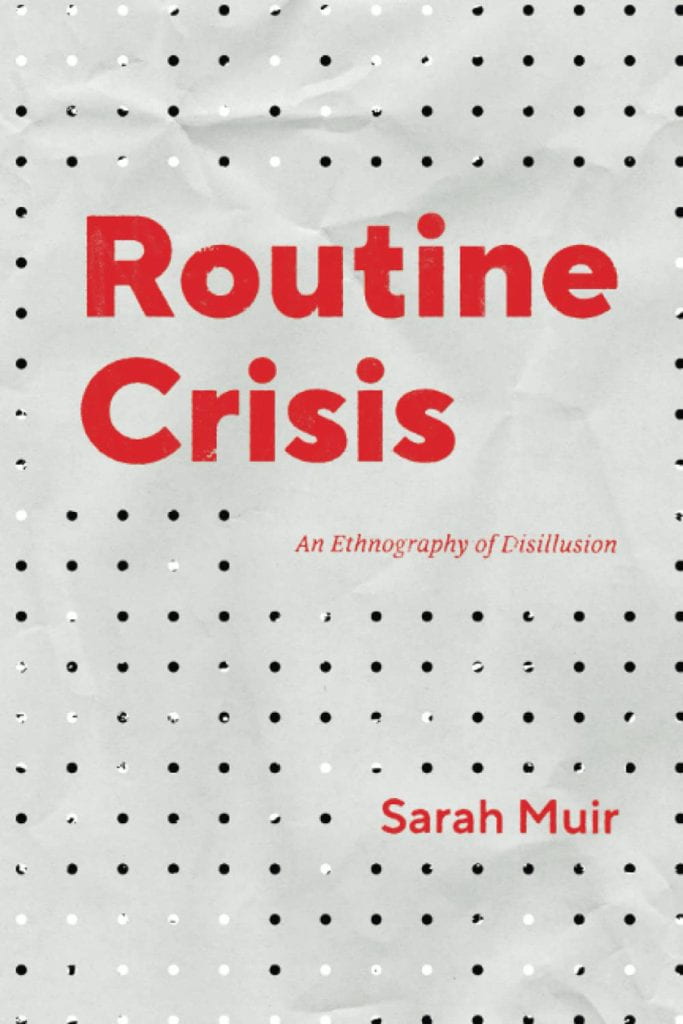
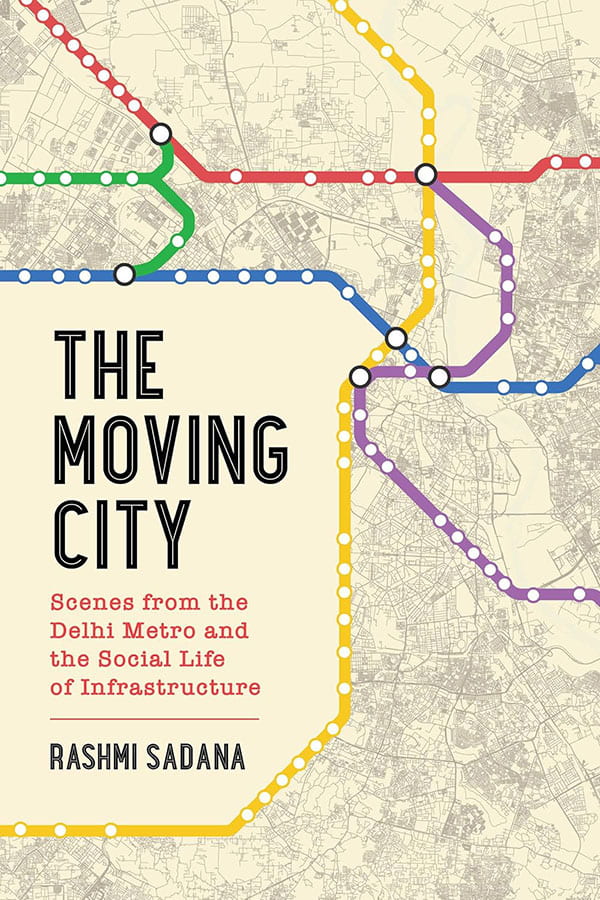
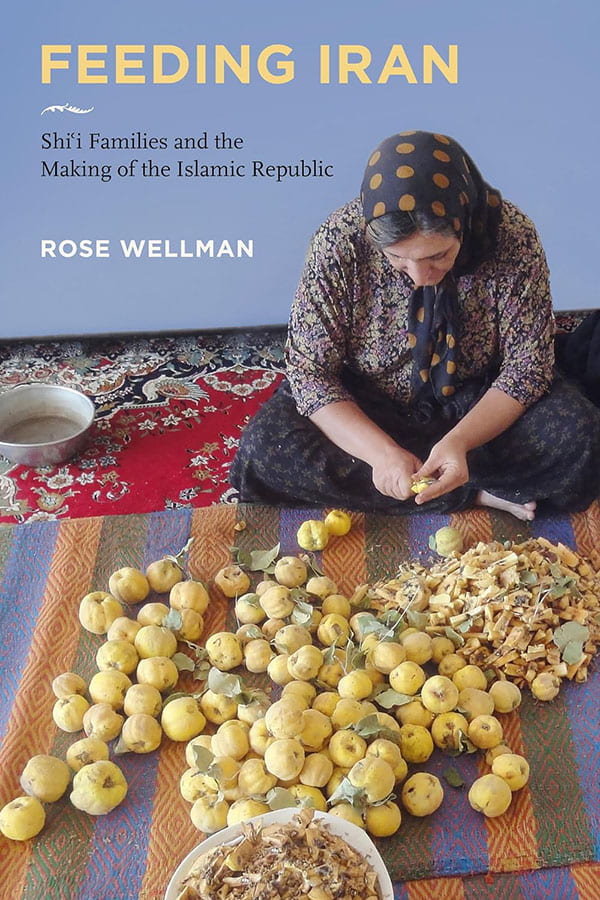
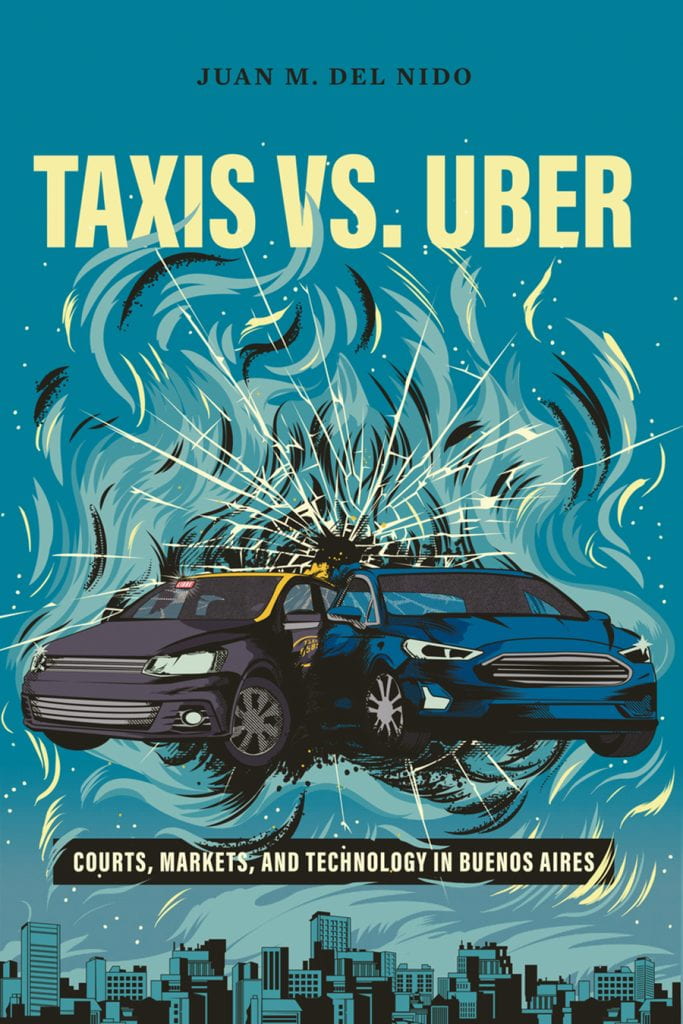
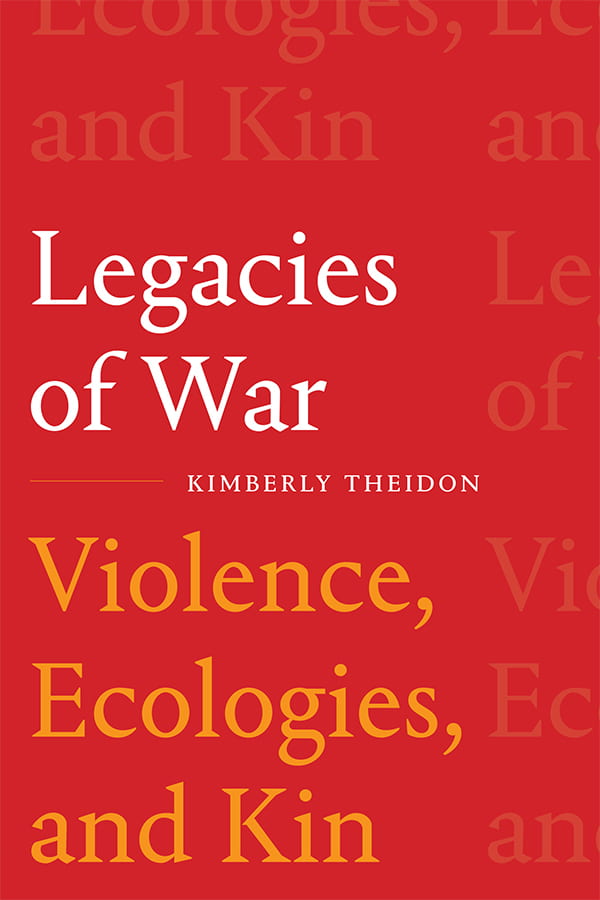
Yazan Doughan | Sarah Muir’s Routine Crisis: An Ethnography of Disillusion
Amrita Ibrahim | Rashmi Sadana’s The Moving City: Scenes from the Delhi Metro and the Social Life of Infrastructure
Anne Meneley | Rose Wellman’s Feeding Iran: Shi`i Families and the Making of the Islamic Republic
Kristin V. Monroe | Juan M. del Nido’s Taxis vs. Uber: Courts, Markets, and Technology in Buenos Aires
Diana Pardo Pedraza | Kimberly Theidon’s Legacies of War: Violence, Ecologies, and Kin

© 2016 Ken Light (Contact Press Images)
ABSTRACT
Restoring Pasts and Enriching Futures in Albania
Nataša Gregorič Bon, Research Centre of the Slovenian Academy of Sciences and Arts
Complaints about the uncertainty and instability of everyday life often emanate from mainstream Albanian society, but a small number of local social entrepreneurs are seeking to overcome this prevailing thought matrix. In postulating their entrepreneurial tactics and goals, they see the mobilisation and transformation of the passive mindset (mentaliteti) of the majority of Albanians as the core prerequisite for their own economic success, as well as general well-being in the country. The paper explores mentaliteti and how it relates to entrepreneurial subjectivities, tactics, and plans. In their aim to mobilize the predominant mentaliteti, local entrepreneurs aspire to revitalize certain traditional moral norms such as responsibility. They do this by redeploying already familiar structural processes like remittances that have been important to the country’s history and economy. Through their entrepreneurial plans and endeavors, this small group of individuals aims to bring back and remit specific, once important, ethical and moral values to ensure a better future for all. Both entrepreneurship and remittances are important drivers of economic and social enrichment and general prosperity in Albania today and in the future. [Keywords: future, mentaliteti, responsibility, enrichment, remittances, social entrepreneurship, Albania]
Hoarding and the Substance of Kinship
Katie Kilroy-Marac, University of Toronto
While much has been written in popular media about the apparent antisociality of hoarders, many people with parents who exhibit hoarding tendencies describe intense (though not always positive or desirable) forms of kin relationality that grow in and around domestic hoards. Based on fieldwork with hoarding intervention specialists, interviews with people who identify as “Adult Children of Hoarders” (ACoHs), and a review of recent memoirs on the topic, this article examines how domestic hoards enable and restrict the interactions, habits, and movements of those who live within them, and in turn, how kin relations get made and troubled in relation to the hoard. I consider the hoard as kinship substance in its own right, and in doing so, reflect upon both the variable meanings of—and the analytic work performed by—the term “substance” in kinship studies over the past four decades. In showing how familial relationships come to be shaped and mediated by the hoard (hoard-as-substance), and even beyond this, how the hoard may itself come to be imagined as kin (hoard-as-kin), this article offers a counterpoint to studies that overemphasize the positive aspects and affects of kinship and relatedness. [Keywords: hoarding, kinship, relations, sociality, materiality, substance, prohibition]
Tech-Colonialism: Gentrification, Resistance, and Belonging in San Francisco’s Colonial Present
Manissa M. Maharawal, American University
This article theorizes tech-led gentrification in San Francisco as a form of what I call, “tech-colonialism.” Drawing on my ethnographic work with movements organizing against eviction and displacement, this article grapples with the critique from activists and protestors that gentrification and the tech-industry are “colonizing” the city. Taking this seriously, I argue that the analytic of “colonialism” provided San Francisco residents and activists with an important framework for political organizing, identity-making, solidarity-work, and forging belonging amidst the city’s on-going “eviction epidemic.” Beyond the discursive deployment by activists of “colonialism” as a concept, I also trace the material continuities between historical forms of colonial dispossession and present-day tech-colonialism, in which technology companies enclose the “commons,” operate above laws, invest surplus capital in speculative urban racialized property regimes, and treat governments themselves as outdated and archaic institutions to be “disrupted.” Ultimately, I define tech-colonialism as the social and spatial strategies of the technology industry that operate through colonial logics of racialized dispossession and materially extend and reproduce the colonial present. [Keywords: racialized dispossession, eviction, social movements, activism, technology]
The Digital Underground: Public Life Beneath the Streets of Bucharest, Romania
Bruce O’Neill, Saint Louis University
Much has been written about the public life of cities, almost all of which is grounded in observations taken from the square and the sidewalk. Yet across Europe, Asia, and the Americas, environmental, demographic, and economic pressures have prompted cities to invest in new and expanded underground spaces, such as subterranean Metro systems, pedestrian passageways, and the basement levels of buildings where apartments, offices, cafes, bars and restaurants, supermarkets and shops, for example, are now found. Romania’s capital city, Bucharest, is one case in point. As the city’s planners ask its residents to move increasingly off of the boulevard and to relate to the city from beneath its main squares, this essay asks a basic question that has received surprisingly little analytical attention: what kind of public life does the urban underground make possible? Ethnographically, this essay takes as its point of departure a prominent advertisement campaign called, “The Digital Public Library” (DPL), which was first installed with civically minded intentions in a major Bucharest Metro station in 2012. The campaign then evolved, through various iterations, for years to come. This essay engages the Digital Public Library—its placement beneath the city as much as its civically minded aims and successes—historically and ethnographically to argue, ultimately, that the expansion of underground urbanism opens up an added and concerning dimension to the privatization and class separation that has threatened the character of urban public life in recent decades. [Keywords: underground, Metro, public life, reading, digitalization, new middle classes]
Assimilating the Heterogeneity of Migrant Populations through a National Past: Transforming a Shiʿa Minority Community in Post-Nationalist Oman
Amal Sachedina, American University
Scholarship on the Arab Gulf region often links heritage production with technologies of state pedagogy in its efforts to fix the spatial boundaries of a nation and entrench authoritarian rule. Yet, such a modular explanation ignores pressing questions regarding how statist narratives domesticate heterogeneous populations and regulate social difference. This paper explores the ways in which official accounts of the historical past have interpellated the material traces of diasporic communities, specifically the enclave of a minority community in Oman, the al-Lawati with links to the Sind region of the Indian sub-continent. The Sur al Lawati, a fortified residential enclosure of the Al Lawati community, draws from Gujarati traditional architecture rather than the surrounding Muscat cityscape. The sur (enclosure) has been mobilized as a token of the nation’s pluralist history as an Indian Ocean trading power. This is consistent with Oman’s expanding culture industry, which since the 1970s has generated history-making practices to sediment a homogenous Arab and general Islamic identity. However, using archival and ethnographic research, I argue that the enclave’s material presence has presided over the complexities of a more entangled history in which the boundaries of this community of merchants and retailers have been reconfigured over the course of the 20th century. The very act of incorporating the sur and its residents into the history of a national people is grounded on the one hand in celebrating a cosmopolitan past as a sea-faring nation that traversed the Indian Ocean waters. On the other hand, it is also tethered to a sense of the past shaped by such categories as the “Arab tribe” and a “generic Islam” Both histories become an exercise of selectivity. They involve gaps, disjunctures, and diversity at the core of what passes as a unifying history of a sovereign nation. [Keywords: Oman, nation-state building, heritage, minorities, al-Lawati, Khoja, Shia]
Provincializing Global Sport: Modernity, Capitalism, and the Politics of Difference in the Age of Super Leagues
Mariann Vaczi, University of Nevada
Global sport, particularly football (soccer), provides scenes of sensuous juxtapositions from which to grasp the world, for example of global hegemonic capitalism and local histories of difference. Three events shook the elite sport world in 2021-2022: the intent to establish a European Super League, Leo Messi’s departure from FC Barcelona, and Barcelona defender Gerard Piqué’s involvement in selling the Spanish Super Cup to Saudi Arabia. These cases provoked widespread indignation over unbridled greed in elite sport. Fans had long been worried that global sport had become increasingly disenchanted by neoliberal business. It is still possible to find, however, sporting cultures that are not entirely posited by capital at an elite level. The Basque Athletic Bilbao “provincializes” (Chakrabarty 2000) the Spanish Liga and its global context through its unique politics of difference: for more than a hundred years, it has signed “local,” “Basque” players only. As a first-division club of elite football, Basque football coexists and interacts with the mainstream narratives and exigencies of global sport. Its localist recruitment philosophy, however, punctuates and modifies the hegemonic history of elite football by defying some of its mythical assumptions. Provincializing global sport means disrupting the universalizing thrusts of modernity and capital by recognizing its subaltern histories, which is desirable for various reasons. First, local politics of belonging ensures the irreducible plurality of the political, which is our claim to difference. Second, provincializing global sport keeps it an affective history, and helps develop a keener sense of what Noyes (2016) called the “internal Others of modernity.” Due to its engagement with both local histories of difference and global capitalism, sport may be uniquely positioned to re-enchant the Weberian logic of rational-secular modernity, and help us “think poetically” (see Michael D. Jackson in Romero and Gette 2019) in anthropology, and beyond. [Keywords: modernity, capitalism, provincialize, Basque, Spain, sport, identity]
